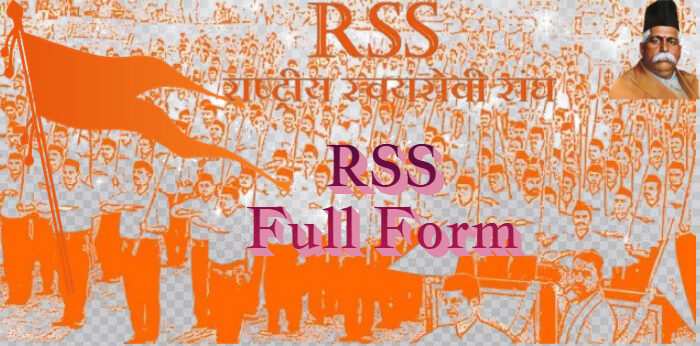Introduction: RSS Full Form
RSS Full Form: Established in 1925 by Keshav Baliram Hedgewar and Dr. Annie Besant, the Rashtriya Swayamsevak Sangh (RSS) emerged as a nationalist organization with the mission of safeguarding Hindus from both British and Muslim rule in India. Today, it stands as the largest volunteer organization globally, boasting over 40 million members worldwide.
What RSS Represents
RSS, which translates to ‘National Volunteer Organization,’ operates as the fifth-largest charity organization in India with a significant budget. With more than 200,000 affiliates in India and abroad, RSS members, known as Swayamsevaks, are selected and trained to uphold Hindu values and beliefs. The organization’s membership stands at nearly 1.25 million, each member belonging to a shakha (unit) within the RSS structure. RSS Full Form
RSS Ideals and Objectives
The RSS aims to foster a society governed by ‘Vedic Dharma,’ promoting unity among various Hindu traditions. It advocates for Hindu pride and patriotism, viewing Hindutva as essential for India’s strength and prosperity.
Historical Background: RSS Full Form
Founded in Nagpur in 1925, RSS sought to revive Hindu values and resist external influences. Through various Hindutva organizations, it voiced opposition against injustices perpetrated by invaders of India.
Philosophy and Mission: RSS Full Form
RSS envisions a unified Indian populace under the banner of Hindutva, emphasizing the need for unity among different Hindu denominations. It sees itself as the guardian of Hindu nationalism, as articulated by its founder, Pandit Deen Dayal Upadhyay.
Role and Significance
Throughout Indian history, RSS has played a pivotal role in social and political spheres. It supported the Indian National Congress during the freedom struggle and contributed to the formation of political parties like Jan Sangh and Bharatiya Jana Sangh.
Conclusion
RSS, (RSS Full Form) founded in 1925 with a mission to uphold Hindu values and promote Hindutva, remains a significant force in Indian society. Led by figures like M.S. Golwalkar, the organization continues to influence Indian politics and societal norms, striving for the betterment of all castes, communities, and states. Despite undisclosed membership figures, RSS’s impact on Indian society is undeniable.
FAQs about RSS Full Form
What does RSS stand for?
Rashtriya Swayamsevak Sangh (RSS) translates to ‘National Volunteer Organization,’ representing a nationalist movement aimed at protecting Hindu interests in India.
What is the significance of RSS in Indian society?
RSS is the largest volunteer organization globally, with over 40 million members, and has been instrumental in promoting Hindu values, fostering unity among Hindus, and advocating for Hindutva.
What is the mission of RSS?
RSS aims to create a society governed by ‘Vedic Dharma,’ promoting Hindu pride and patriotism while advocating for unity among various Hindu traditions under the banner of Hindutva.
What role did RSS play in Indian history?
Throughout Indian history, RSS has played a significant role in social and political movements. It supported the Indian National Congress during the freedom struggle and contributed to the formation of political parties like Jan Sangh and Bharatiya Jana Sangh.
Who founded RSS, and what are its core principles?
RSS was founded in 1925 by Keshav Baliram Hedgewar and Dr. Annie Besant. Its core principles include upholding Hindu values, promoting Hindutva, and fostering unity among Hindus under the banner of ‘Vedic Dharma.’

